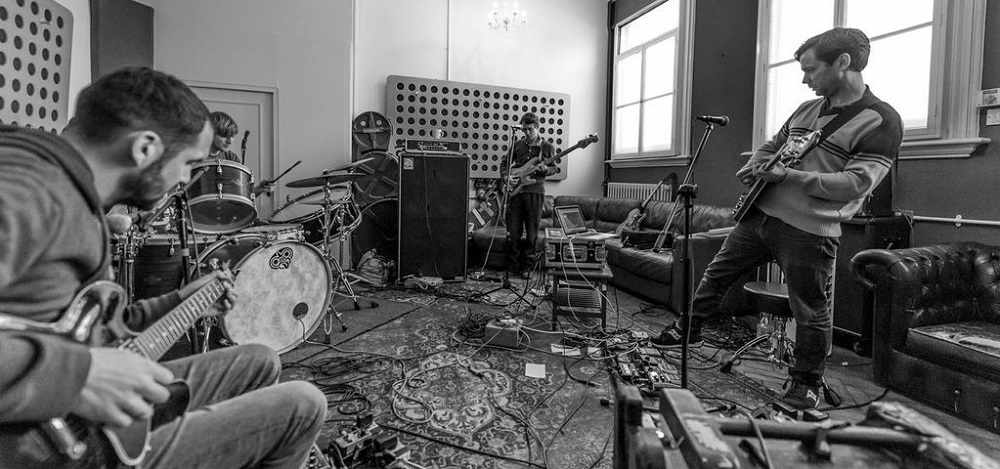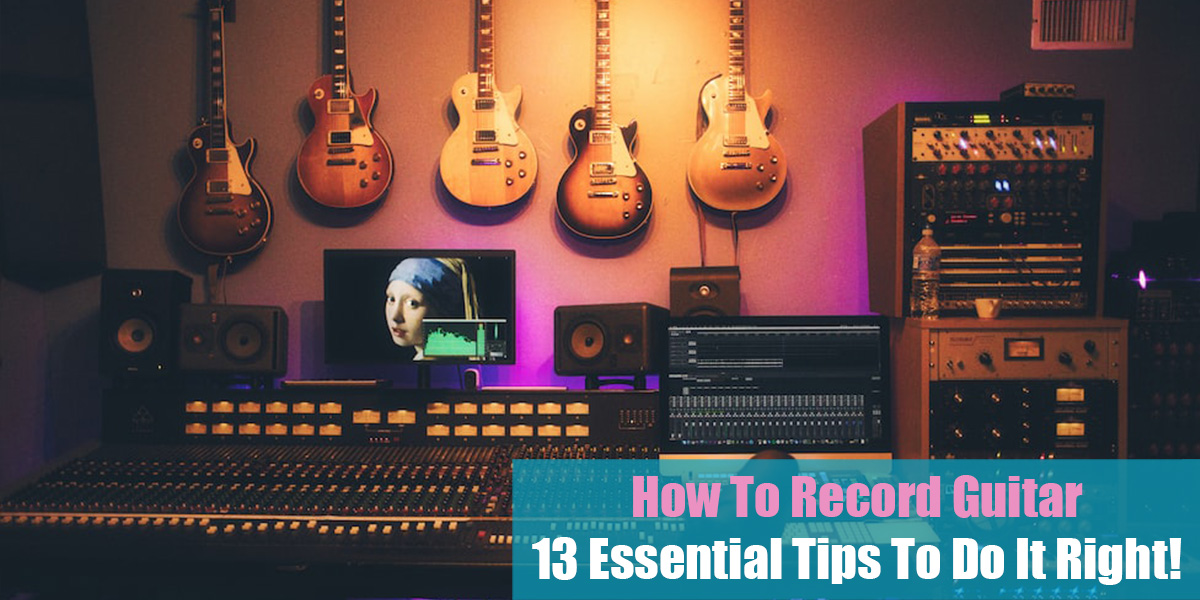Tips for Productive Band Practice
Introduction
Do you ever leave band practice feeling aimless or like you’re not making the progress you should? Maybe the journey home feels like a waste of time. Whether you’re in a brand new band or you’ve been playing together for a while, it’s common to feel like your practice sessions aren’t quite hitting the mark—especially before your big onstage debut.
Even experienced bands can end up with rehearsals that don’t feel productive. But don’t worry—just by scheduling a rehearsal, you’ve already taken the first step toward making great music together. The good news is, there’s a simple fix that can completely change the game: planning!
Here are 15 tips for band practice that will help you see results in no time:
1. Good Band Leader
A good band leader needs to be a strong communicator and highly organized. They should be able to keep track of important details like rehearsal dates, who still owes money, and all the other less exciting parts of running a band.
Additionally, a good band leader must be willing to make tough decisions, even if they aren’t popular with everyone—like casting the deciding vote on which songs to drop from the setlist.
Your band leader also needs to be able to handle criticism and pushback when their decisions aren’t well received. This is essential for maintaining unity within the band.

2. Be Prepared
Teaching other members the material before we can actually rehearse is extremely frustrating. If you take about forty minutes to get a basic understanding of the material ahead of time, it will ultimately save the band a lot of time.
You don’t need to have practiced the material perfectly before rehearsal, but you should at least understand it before coming into the practice room.
3. Set a Goal
In a sense, it’s true that the main goal of any practice session is simply to practice the songs. However, your approach will differ depending on your goal. For example, if you’re getting ready to perform live, you’ll practice differently than if you’re learning new material or preparing for a recording session.
If you’re working on a new demo, precision matters more than pacing. In this kind of practice, your focus should be on perfecting the song itself, rather than running through an entire set. Take as much time as you need to improve the song until it’s just right.

4. Unnecessary Breaks
Don’t spend rehearsal time talking about the latest episode of your favorite show or how cute someone’s new pet is. We all need time to socialize and catch up with friends, but rehearsal isn’t the place for it. If you want to chat or resolve anything, meet up with a friend or two about an hour before practice.
Rehearsal time is for practicing only. Make sure to use the restroom and eat before rehearsal starts, since there won’t be any breaks once we begin.
5. Learn Your Parts
Make sure you memorize all your lyrics, guitar parts, drum patterns, and anything else you’re responsible for before rehearsal—not during it. Doing this will save time during practice and show your bandmates that you’re making real progress.
However, if you need to change something you’ve already learned, don’t get discouraged. Sometimes, when you all play together in person, you may need to make adjustments to fit your band’s style and everyone’s range.

6. Stay Focused
Working through long sessions can be tough. Not only can it get hot and stuffy, but these sessions can also be especially exhausting. Still, staying focused is absolutely essential. Even a slight loss of focus in a positive, creative environment can undo all your hard work.
By practicing the steps above, you’ll hopefully find it easier to maintain focus naturally. If someone starts to lose concentration, a reasonable and polite approach can mean the difference between a productive session and a wasted one.
7. Rehearsal Structure
Plan your band practice ahead of time so you don’t waste time figuring out what to do next. It may take a few tries to find a routine that suits you. Avoid giving yourself too many unnecessary breaks—while it’s important not to overwork yourself, breaks are a great time to review your progress.
If you get used to playing for longer periods, you’ll be better prepared for concerts or long recording sessions. Plus, if you’re paying for a practice space, you’ll get more value for your money.

8. Communicate
It’s not always a good sign if one member of your band doesn’t speak up much. Communication is important when it comes to sharing opinions about songs and deciding how rehearsals should go.
If someone finally speaks up after feeling unheard or thinking the band’s direction has been wrong for months, it can help save a lot of time. For a productive environment, it’s important to encourage open communication.
9. Be Plugged
It’s important to get the sound levels just right—you don’t want the drums and guitars to be too loud when you’re practicing this type of music. Playing at a lower volume will make it easier to hear any mistakes that need to be fixed, and your vocalist(s) won’t have to strain their voices to be heard over the other instruments.
At this stage, it might be helpful for each band member to have a microphone, not just the vocalist(s). This way, everyone can hear each other clearly over the music.

10. Record Your Practice
It’s amazing how helpful this can be. You’ve probably experienced a situation where something feels off during practice, but you just can’t figure out what it is. Keeping a record of your practices can really help with this.
You can listen to your sessions again and analyze them until you find exactly what’s causing the problem. Plus, these recordings let you track your band’s progress over time, which is always a great confidence booster.
11. Be Respectful
In a band, you are greater than the sum of your parts, so every member should benefit from each practice session. It’s essential that everyone comes prepared for practice and shows respect to their bandmates during rehearsal.
To show mutual respect, everyone should follow the same rule: no noodling! If the group is having a discussion, please don’t play your instrument between songs.
It’s also a good idea for every guitarist and bassist to have a tuner pedal, if they don’t already. Nothing is more irritating than a guitar being tuned loudly.

12. Learn Your Words
In addition to knowing your instrument, its repertoire, the history of the period, and the reasons behind musical arrangements, it is essential to understand why the music is written the way it is. Always translate the libretto into your native language before singing in a foreign language.
This will help you fully grasp the meaning of the words. Get to know some of the greatest artists and recordings of the music you perform, and try to figure out what makes each artist or particular performance exceptional.
13. Plan Future Rehearsals
You’ve finished your first productive band practice—great job! Now it’s time to keep the momentum going. Make sure to schedule one evening each week when everyone is available.
Soon, this routine will become second nature, and you’ll all start to notice real progress. Set up a regular rehearsal schedule at your chosen space so everyone knows when and where to meet. This also prevents other bands from taking your spot.
Stick to these steps each week, and watch your group get better and better.

14. Make Changes
People approach these situations in different ways, but it’s easy to fall into the mindset of “that’s the way we’ve always done it” or “it’ll be fine.” These attitudes can hold your group back and negatively impact your musical results.
If something feels off, there’s probably a reason for it. Don’t ignore it—make a change! Look for a better solution and think creatively. The more you identify and improve these issues, the stronger your musical product will become.
15. Be a Team
Depending on the situation, this can look different, but the main goal is to work together as a group, not to let one person call all the shots. It’s important for everyone in a band to have an equal say and be treated fairly. If one person takes over, it can cause tension and break the group apart.
So, make sure to listen to everyone’s ideas. Give someone’s suggestion for direction or delivery a try—you never know, it might lead to an amazing performance! There’s no harm in experimenting. The only time this might be different is in a session setting, where musicians are playing for someone else instead of as a band.
Conclusion
It’s important to decide what you want to achieve during each practice session. Break your goals into realistic segments, and set practical deadlines for each task. You might need to prepare new songs or cover versions for an upcoming performance or recording session.
Your personality can influence how you work with others just as much as your musical style or approach. Often, your ability to adapt and organize as a band—without causing unnecessary conflict—will determine your success.
To be successful, regular practice sessions are essential, whether you’re just starting out with a band or facing challenges with an existing one.






